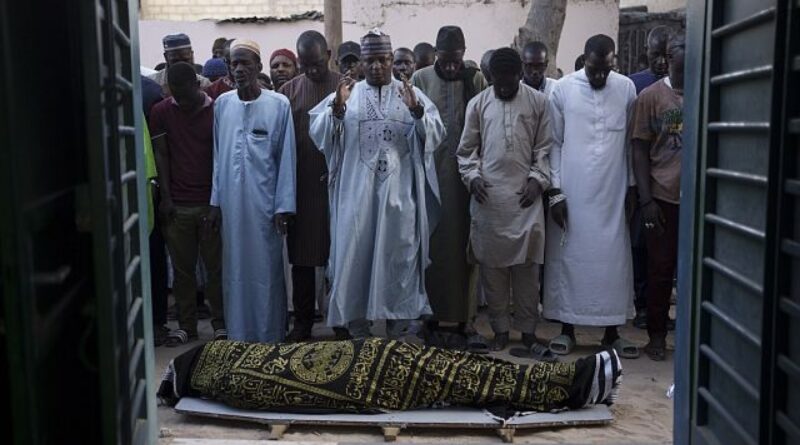Senegal: Loved ones mourn student killed during unrest
Dozens of emotional friends and relatives gathered to pray around 26-year-old Elhaji Cisse outside a mosque near his house on June 5.
While a cautious calm returned to Dakar on Monday (June 5) after days of clashes, at least 16 people were killed in the violence and hundreds injured.
Cisse’s brother said he was walking home on June 2nd evening when he was shot in the shoulder.
“Elhaji was not a demonstrator. He was a good patriot. He was interested in everything that was happening in the country … He went to pray, but when he came back, they threw tear gas. He stepped aside to avoid the grenades. Then the gendarmes were there, and they shot,” said Djimbala Ba, his brother. The AP cannot independently verify how Cisse was killed; however, demonstrators have reported the use of live bullets.
Cisse was rushed to hospital but died minutes later. He was about to study abroad in Canada, said his family.
In a procession of motorbikes, buses and cars, his loved ones accompanied him to his final resting place.
“(I feel) very sad,” Cisse’s friend Malick laments. “Very, very sad because the loss of human lives is starting to become serious for politics, for things that really aren’t worth it. We are seriously asking the State of Senegal and all those involved to reconsider what is happening.”
An unrest shook Senegal between June 1st and 3rd after security forces clashed with supporters of opposition leader Ousmane Sonko. Police have arrested 500 people.
Grave political crisis
The deadly clashes first broke out after the leader was convicted of corrupting youth but acquitted on charges of raping a woman who worked at a massage parlor and making death threats against her.
Sonko, who didn’t attend his trial in Dakar, was sentenced to two years in prison.
His lawyer said that a warrant hadn’t yet been issued for his arrest.
Sonko, his Pastef party, his supporters have denounced a conspiracy fabricated by the ruling party to impede his candidacy in next’s year presidential race.
In March 2021, large protests shook Senegal following the arrest of the political opponent who was on his way to a court summons in connection with the rape complaint [Editor’s Note: he was acquitted of rape charges on June 1st but condemned for “corrupting the youth”].
Prior to that incident, Sonko had his parliamentary immunity removed as several members of his party, Pastef-Les Patriotes and civil society were “arbitrarily arrested” according to Amnesty.
Two years later, the families of most of the victims are still waiting for justice.
While the country of around 17 million people, has experienced upheaval before, rights groups and analysts say the current clashes are the worst political crisis the nation has seen since 1988, when a general strike and electoral protest shook the power of the then president.
Some families have lost relatives who weren’t involved in the protests but have suffered the consequences of it. Observers say they were the worst political crisis the nation has seen since 1988.
Additional sources • Amnesty International

